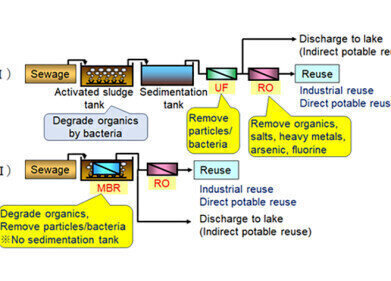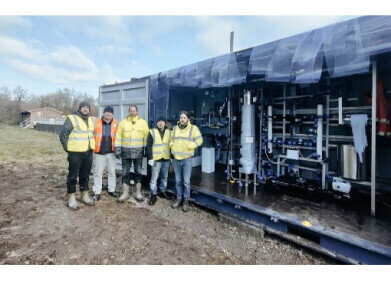Water/Wastewater
Can Polluted Rivers Be Cleaned Up?
Sep 28 2021
Last year, data published by the Environment Agency revealed that a pathetic 14% of the rivers in England qualify as having “good” ecological status, according to official criteria decided upon by the Agency. Even more astonishingly, 0% of the rivers in the country achieved “good” chemical accreditation, spelling out in no uncertain terms the extent of river pollution all across England.
Despite this, the UK government has set out an ambitious target of having 75% of rivers in the UK meet “good” ecological status by 2027. Given that water quality has actually been in decline for more than a decade now, is such an aim actually feasible? And if so, how should private individuals, corporate water companies and public authorities go about making it happen?
Addressing the issue at source
The pollution that is found throughout English rivers comes from a number of different sources, including industrial facilities, sewage treatment plants and agricultural run-off. This latter phenomenon has recently become the number one contributing factor to poor water quality in our rivers, accounting for 40% of all contamination at present.
That’s due to a mixture of increased usage of fertilisers, pesticides and herbicides and the more intense and more frequent extreme weather events brought on by climate change. But while the best way to clean up flooded lakes and rivers remains a subject of some debate, any holistic solution would involve eliminating the pollution at source, before it is allowed to infiltrate the waterways at all.
Going organic
Given that agricultural run-off is now the chief culprit when it comes to contaminating rivers, targeting a solution to this problem should be a top priority. Some of this pollution happens during flooding and some during illegal discharge of waste by farmers, but much of it occurs due to the chemicals contained in artificial additives leaching into the soil and then into rivers and streams.
As such, it will require an industry-wide transition to more organic forms of fertilisation and crop control for tangible effects to be felt. This, alongside, the employment of precision agriculture and modern farming methods, which optimise the use of fertilisers and other products and position hedges to limit run-off, is necessary to limit the negative impacts of agricultural activity as much as possible.
Holding water companies to account
Another leading contributor to river pollution is malpractice by the water companies responsible for treating sewage and wastewater. It’s no coincidence that river quality throughout England and Wales has deteriorated since the industry was privatised. Indeed, there were almost 18,000 instances of sewer overflows (where untreated water is discharged into public waterways) in 2019, despite this circumstance being legally permissible only in times of extreme rainfall.
If the government is truly serious about cleaning up the country’s contaminated rivers, it must impose adequate penalties on the firms which flout its laws. A £20.3 million fine for Thames Water in 2017 – the largest charge to date – is a step in the right direction, but more must be done to monitor and enforce the laws throughout the country. Alternatively, England could take a leaf out of the book of its northern neighbour Scotland, which has its own state-owned water company that performs significantly better than the private entities south of the border.
Events
Apr 22 2024 Hannover, Germany
Apr 23 2024 Kuala Lumpur, Malaysia
Apr 24 2024 Sao Paulo, Brasil
May 05 2024 Seville, Spain
May 13 2024 Munich, Germany













